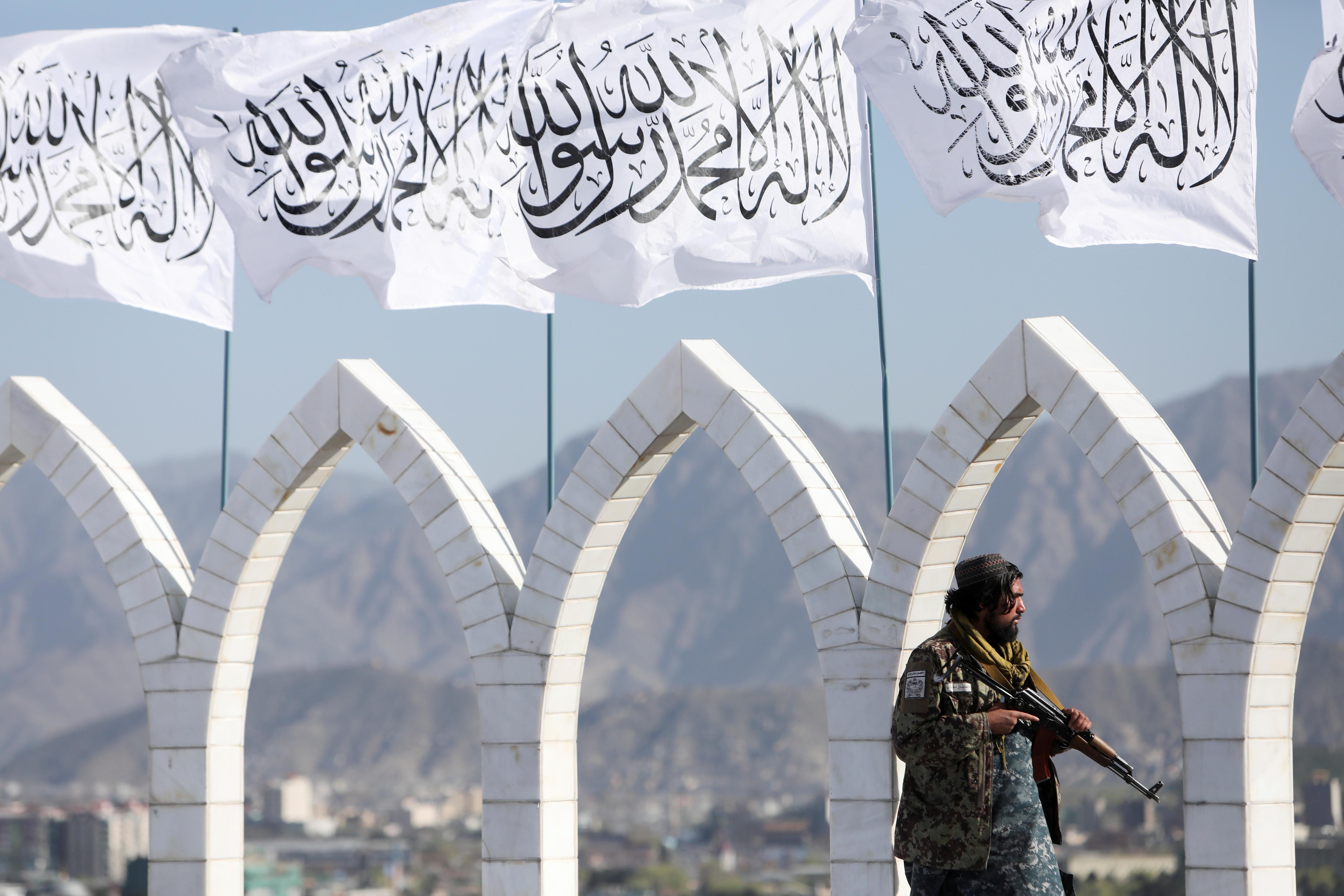A year ago, the Taliban won their war in Afghanistan. On Aug. 15, 2021, as they entered Kabul in a lightning advance that shocked the world, images of a botched US exit permanently scarred America’s legacy in its longest war — a mission US commanders now admit they lost track of years ago.
But where does Afghanistan stand a year after the Taliban took over?
That’s reflected in how the Taliban are doing. Contrary to the hopes of optimists, no “Taliban 2.0” has emerged. The regime hasn’t really reformed, and is as hardline as it was when it ruled the country from 1996 to 2001.
There is no constitution. Religious policing is back with a vengeance. The media is muzzled. And the recent US killing of al-Qaida leader Ayman al-Zawahiri in a Kabul enclave that houses senior members of the Haqqani Network — whose boss is the current interior minister — has confirmed the skeptics who thought the Taliban could or would never disassociate from international terrorism.
Financially, things are as bad as they can get. The economy has essentially collapsed under the weight of international isolation, sanctions, and aid cuts. It was so hooked to the war that six months after the American withdrawal, GDP fell by a third. Now, Afghanistan is near universal poverty and starvation.
Women and girls have had it the worst. Millions of them have found themselves out of school, out of jobs, and out of public life altogether. The Taliban’s supreme leader vetoed a government edict to let them back to class in March, a political development that underscores serious schisms within the regime’s conservative and moderate — by Taliban standards — elements.
On Sunday, on the eve of the re-establishment of the “Islamic Emirate,” a few brave women marched in a rare protest in Kabul. They were beaten and scared off by automatic gunfire.
On the one hand, some stability has come. The Taliban takeover did end the war. Overall, violence has abated across Afghanistan, opening up vast swaths of the hinterland to some development and jobs. Moreover, the Taliban seem to have improved upon the taxation system of the previous regime, and even controlled corruption.
On the other, the Taliban are now fighting their own insurgencies. There’s been a recent uptick in clashes between the Taliban and ISIS-K, the even more hardcore Islamists who own the Islamic State franchise in the region. The Taliban’s other internal enemy is the ragtag but determined group of nationalists that form the National Resistance Front. The fighting continues to add to the hundreds of thousands of Afghans who have been internally displaced or been forced to flee their homeland.
“The Taliban have managed to keep major armed challengers to their rule at bay until now, but at the same time have struggled to consolidate politically,” says Asfandyar Mir, a senior expert at the US Institute of Peace in Washington, DC. “There are internal political problems, tenuous ties with the international community, and a range of security threats to the region festering in the country.”
One year into their rule, Mir adds, the Taliban are drifting, “and their troubles continue to mount.”
The regime continues to disappoint not just Afghans, but even its few friends abroad. The fact that no country, not even the Taliban’s most erstwhile ally, has recognized their government underscores this skepticism.
Pakistan, which for the last two decades has burnt many bridges with Washington to protect Taliban leadership and provide safe haven to its fighters, is now being attacked regularly by insurgents associated with Kabul.
Other nations willing to talk to the group, like Uzbekistan and China, have also been left in the lurch. They were promised safer borders, but militants who threaten them and other countries continue to move, organize, arm, and recruit across Afghanistan.
“The Taliban have disappointed different people for different reasons,” says Torek Farhadi, a former Afghan finance ministry and World Bank official based in Geneva.
“They have disappointed all Afghans by preventing their teenage daughters from going to school. They have disappointed the Pakistanis because no pressure was exerted on the Pakistani Taliban. They’ve disappointed the Iranians because they have not been able to hit harder on ISIS and attacks on our Shiite community continue. They’ve disappointed the West because of their human rights record, and they’ve disappointed Islamic countries by shaming the image of Islam.”
So, is there any hope for things to get better? Not much, at least in the near term.
Though they control more of Afghanistan now than the first time they were in charge, it’s unclear whether the Taliban’s inability to deliver locally and internationally is a problem of capacity, will or both. Regardless, it’s left little space for Taliban optimists both home and abroad.
“The Taliban remain deeply wedded to their jihadi precepts, which gives a certain clerical class and the fighters within the movement immense power over decision-making,” assesses Mir. “That makes it exceedingly difficult for [them] to take steps which can help consolidate their rule, work with the international community, and prioritize state-building.”
Still, the regime continues to seek legitimacy. The Taliban’s younger leadership is making moves: putting out feelers for the West and trying to engage democratic partners, like India. Meanwhile, they’re also negotiating to gain access to the billions of dollars in former Afghan government funds that were frozen by Washington last year.
But getting that cash or international recognition will remain unlikely as long as the Taliban continue to adhere to suppress women, attack minorities, and aid terrorism. Unfortunately, it’ll be a tall order for the Taliban to make progress. After all, the group belongs to two limiting and regressive schools: tribalism and jihad.
Change isn’t rewarded, but bellicosity is.
